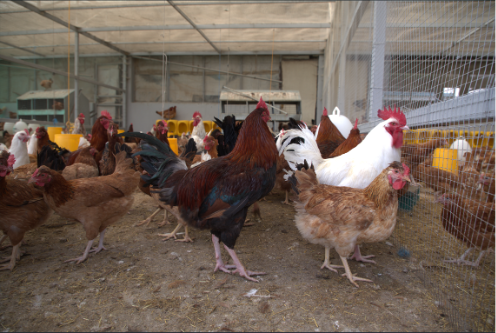Across Africa and Southeast Asia, poultry farming remains one of the most important sources of food, income, and economic opportunity for rural households. Chickens provide affordable protein through eggs and meat, while also generating income for small-scale farmers. However, the sector faces persistent challenges such as low productivity, high chick mortality rates, lack of quality breeds, limited investment, and the perception that poultry farming is more of a household hobby than a serious business. These barriers limit its potential to fight malnutrition and improve rural livelihoods.
To address these issues, the International Livestock Research Institute (ILRI) established the Tropical Poultry Genetics Solutions (TPGS) initiative. This project aims to transform village poultry farming by introducing high-quality, locally adapted chicken breeds that perform well in rural conditions. Running from August 2022 to July 2025, TPGS operates in six African countries and three Southeast Asian nations, with a strong focus on empowering women and supporting vulnerable communities.
The program builds on the success of the earlier Africa Chicken Genetic Gains project, which introduced high-yield exotic breeds into Ethiopia, Nigeria, and Tanzania. While these breeds significantly improved productivity, there was a need to focus more on chickens that are not only productive but also resilient to local climates, diseases, and feeding systems. Locally adapted breeds can survive and thrive in challenging rural environments, making them more sustainable for long-term poultry production.
TPGS combines advanced breeding science with community engagement, policy advocacy, and partnership building. Its approach is structured around several key outcomes. These include studying the adaptability of local chicken ecotypes, identifying traits valued by farmers, developing effective breeding programs, improving chick distribution channels, influencing supportive policies, monitoring project impact, and establishing a permanent Tropical Poultry Platform to ensure long-term coordination.
One of the initiative’s most remarkable accomplishments is its ability to enhance poultry output in previous pilot initiatives. In places like Ethiopia, Tanzania, and Nigeria, tropically adapted breeds introduced through related programs have been shown to improve body weight by 200 to 300 percent and egg output by 100 to 200 percent when compared to local indigenous chickens. These gains not only enhance household nutrition, but also increase smallholder farmers’ earning potential, allowing them to reinvest in their farming operations.
Gender inclusiveness is also a top priority for the initiative. Poultry farming is frequently managed by women in rural communities, allowing them direct access to the economic and nutritional benefits of the industry. By providing women with productive and resilient chicken breeds, TPGS strengthens their decision-making role, increases family income, and enhances household well-being.
TPGS is studying various dual-purpose breeds, including Kuroiler and Hubbard, in Ghana and other places to compare their growth rates, egg yield, and survival rates to indigenous chickens. The findings are likely to help farmers choose breeds that would produce higher yields while remaining acceptable for local conditions.
TPGS’s complete strategy positions poultry farming as a potent instrument for reducing poverty, increasing food security, and encouraging economic empowerment in some of the world’s most vulnerable rural areas.



